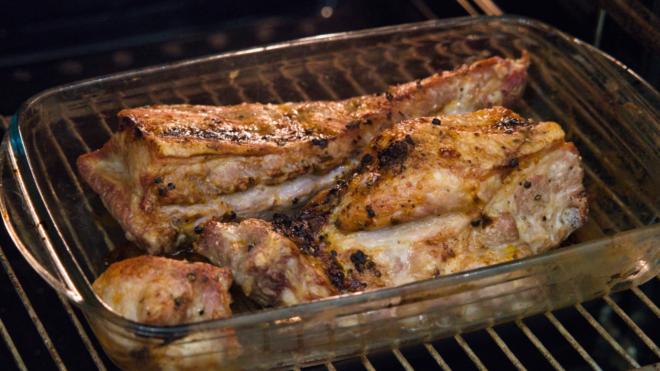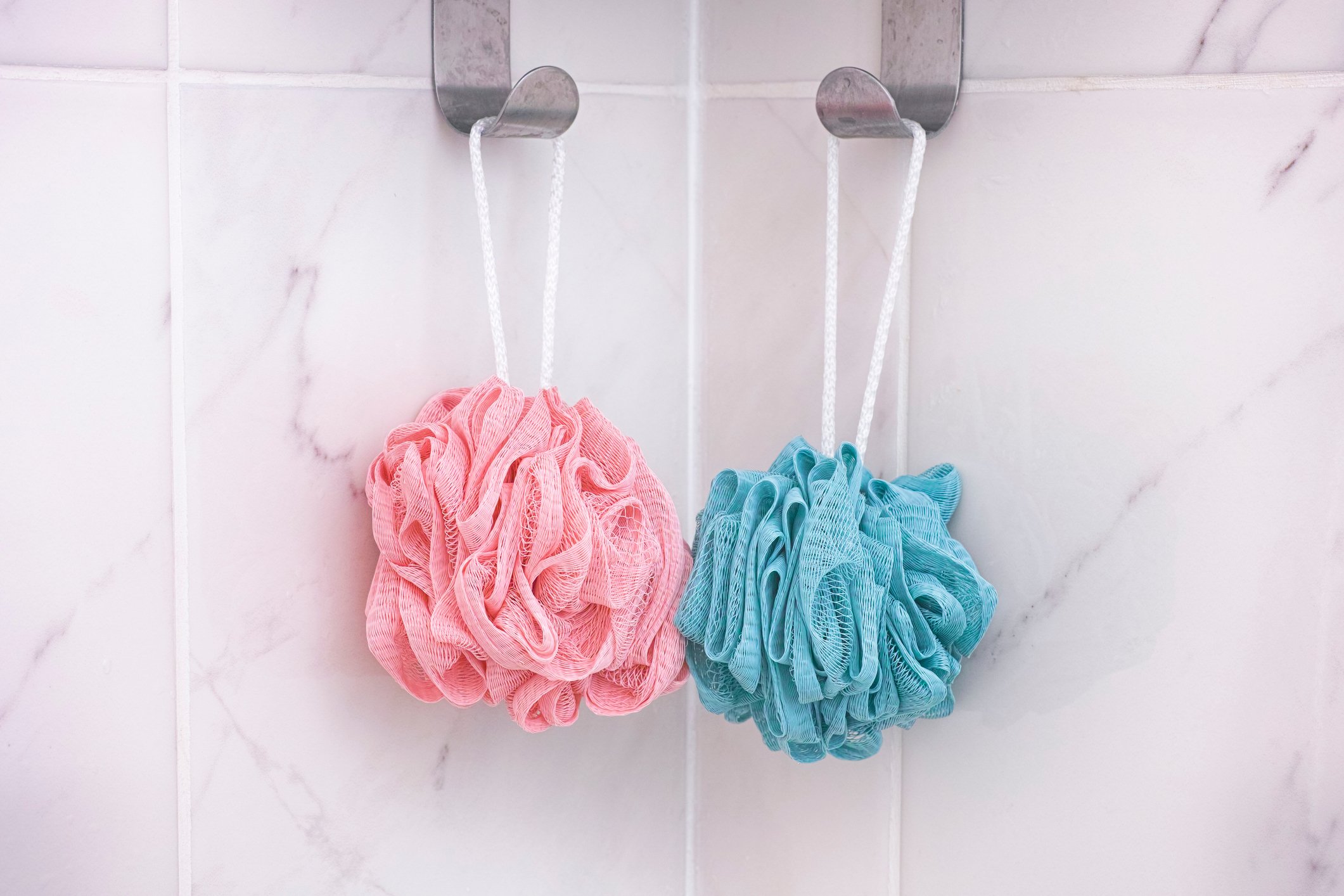
If you regularly use a shower loofah, you might not be as squeaky as you think. Using a nylon mesh shower loofah to lather up is common, and while you might think you’re getting a deep clean, you could actually be making things grosser. A lot grosser.
That’s because all those damp layers are a perfect breeding ground for all sorts of nasty bacteria. And those bacteria can wind up making skin look dull, aggravate acne-prone skin, and even infect cuts.
Yes, bacteria are everywhere, and there’s kind of nothing we can do about that. But there are certain small changes you can make to ensure that your home is a little bit cleaner. For instance, you could ditch the shower loofah and explore other ways to get clean.
And don’t worry, you’ll still be able to give yourself an invigorating scrub, even if you decide to toss your bath puff. We’ll show you how!
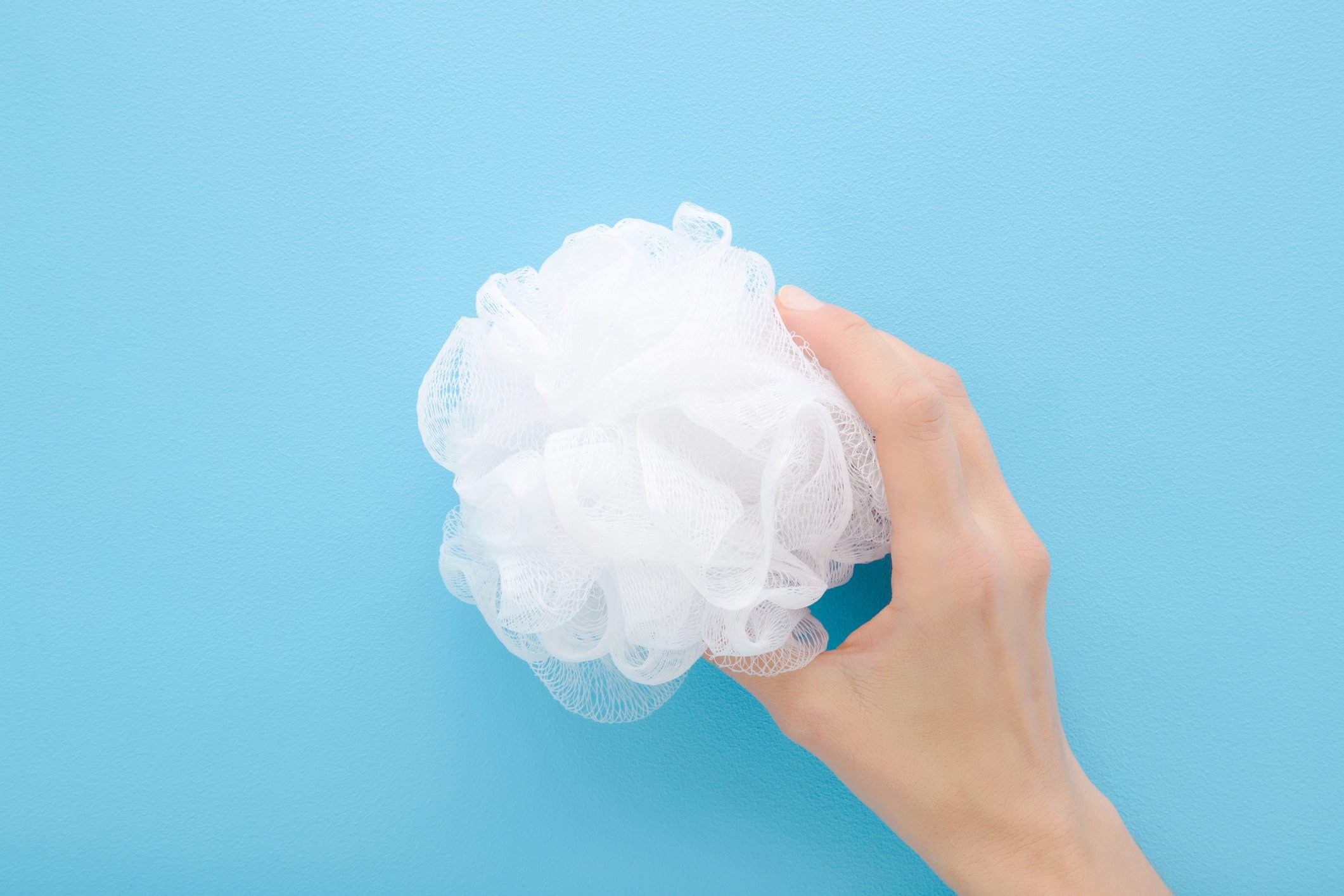
Everybody loves loofahs because they’re not only cute, but they work wonders at lathering up soap. They also come in all kinds of colors so you can always get one that suits your bathroom’s color scheme.
But dermatologists see these innocent-looking puffs in a slightly different light.
They're Damaging
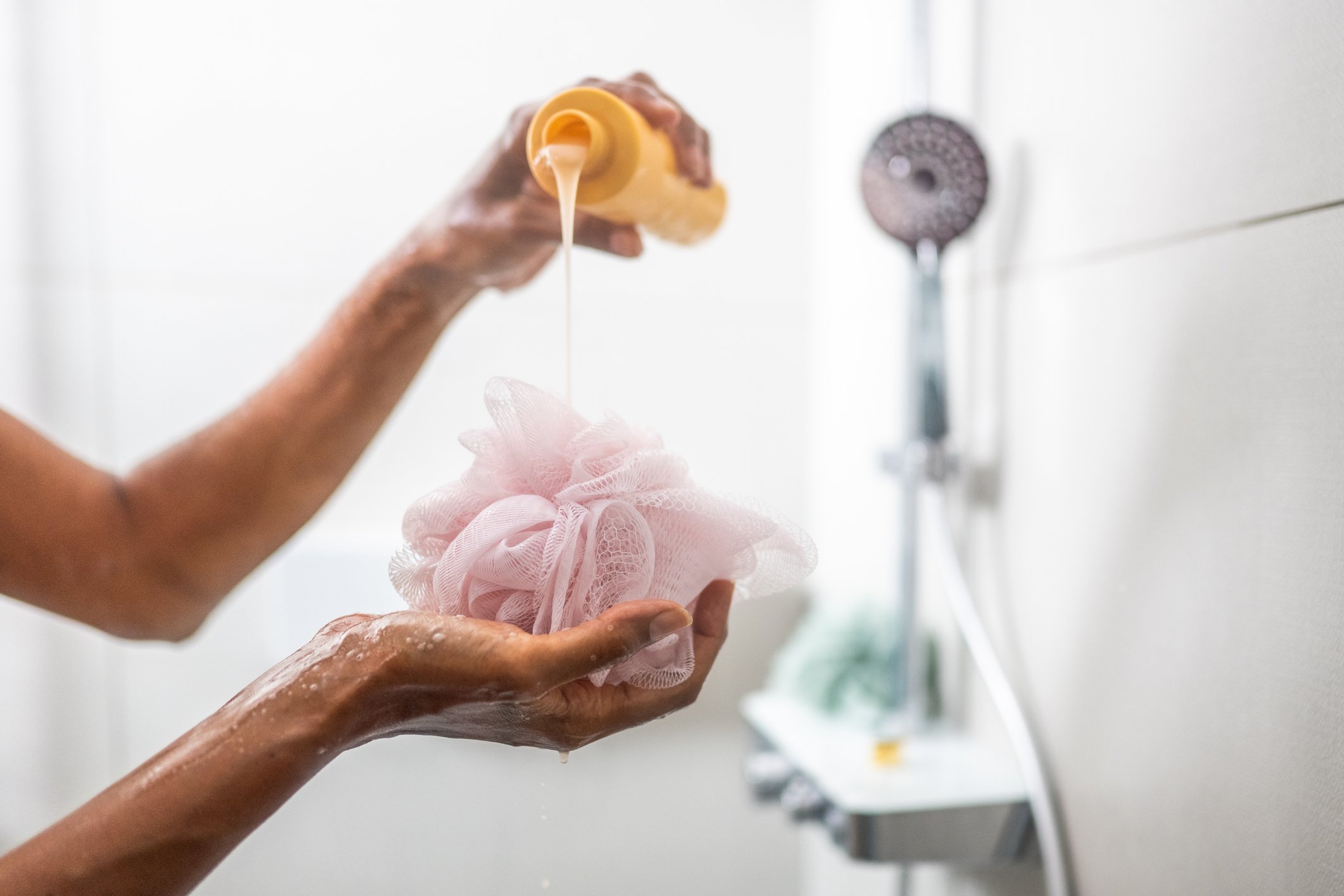
According to dermatologist J. Matthew Knight, MD, these puffs are actually doing more to damage our skin than to clean it.
Knight says that after using the puff, the dead skin cells that have been sloughed off get caught in all those layers.
And when left in a damp tub, they become the perfect habitat for yeast, mold, and mildew, as well as the bacteria responsible for boils and conjunctivitis — and that’s all within a few hours.
So the next time you use it, you’re showering with a whole ecosystem.
If this all sounds really gross to you, you might be wondering what else you can use to scrub. Never fear: you have a lot of options.
Try a Natural Loofah
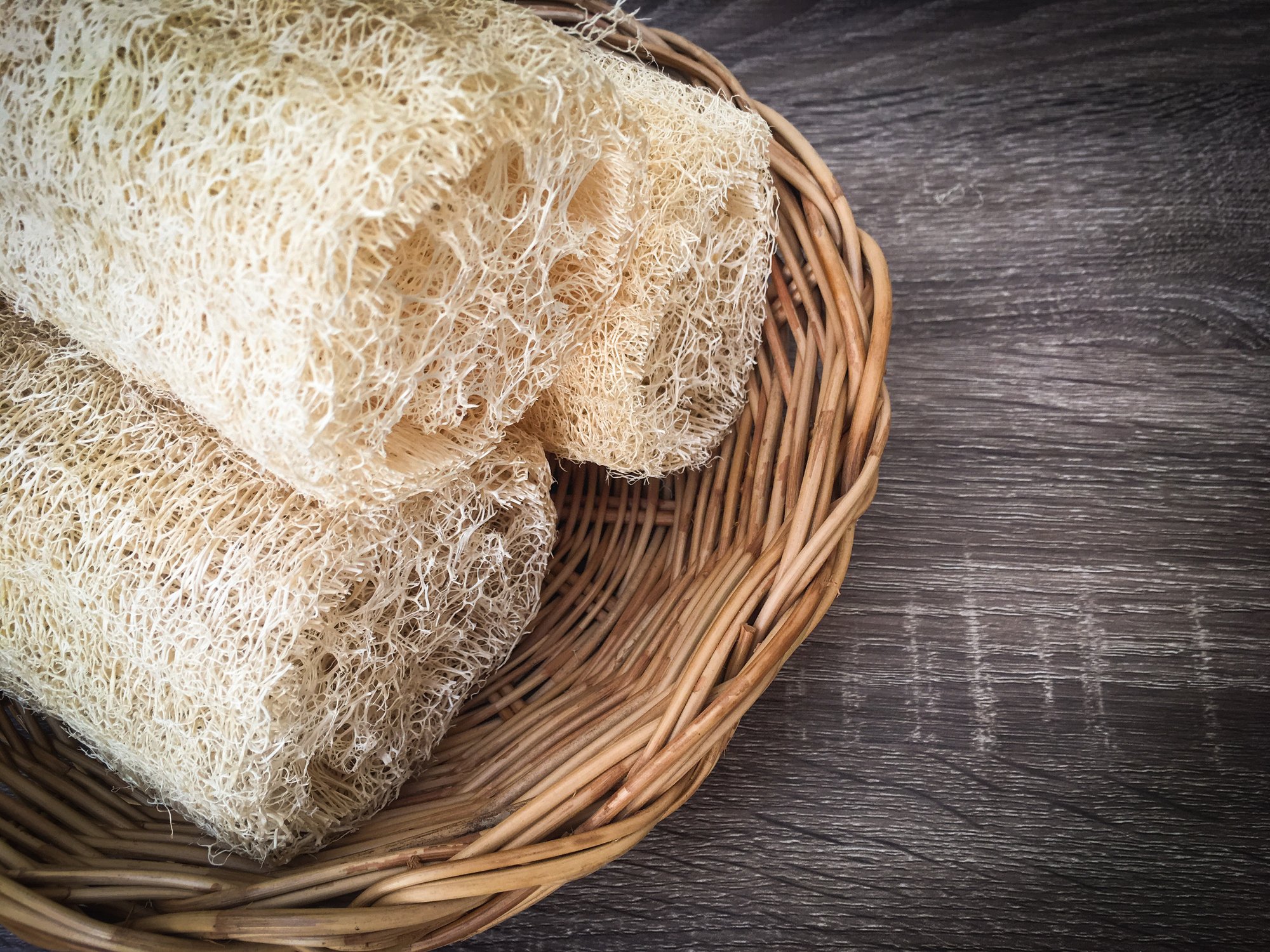
A natural loofah like this is a great alternative if you still like something lathery and scrubby. These are actually the fibrous insides of gourds, which is pretty neat.
Natural loofahs like this can still harbor bacteria, but they’re less dense than many synthetic models and so easier to rinse thoroughly. The best way to keep loofahs clean is to let them air dry outside of the shower, away from the dampness in a cool, dry place.
And be sure to replace your natural loofah about once a month.
Or a Sea Sponge
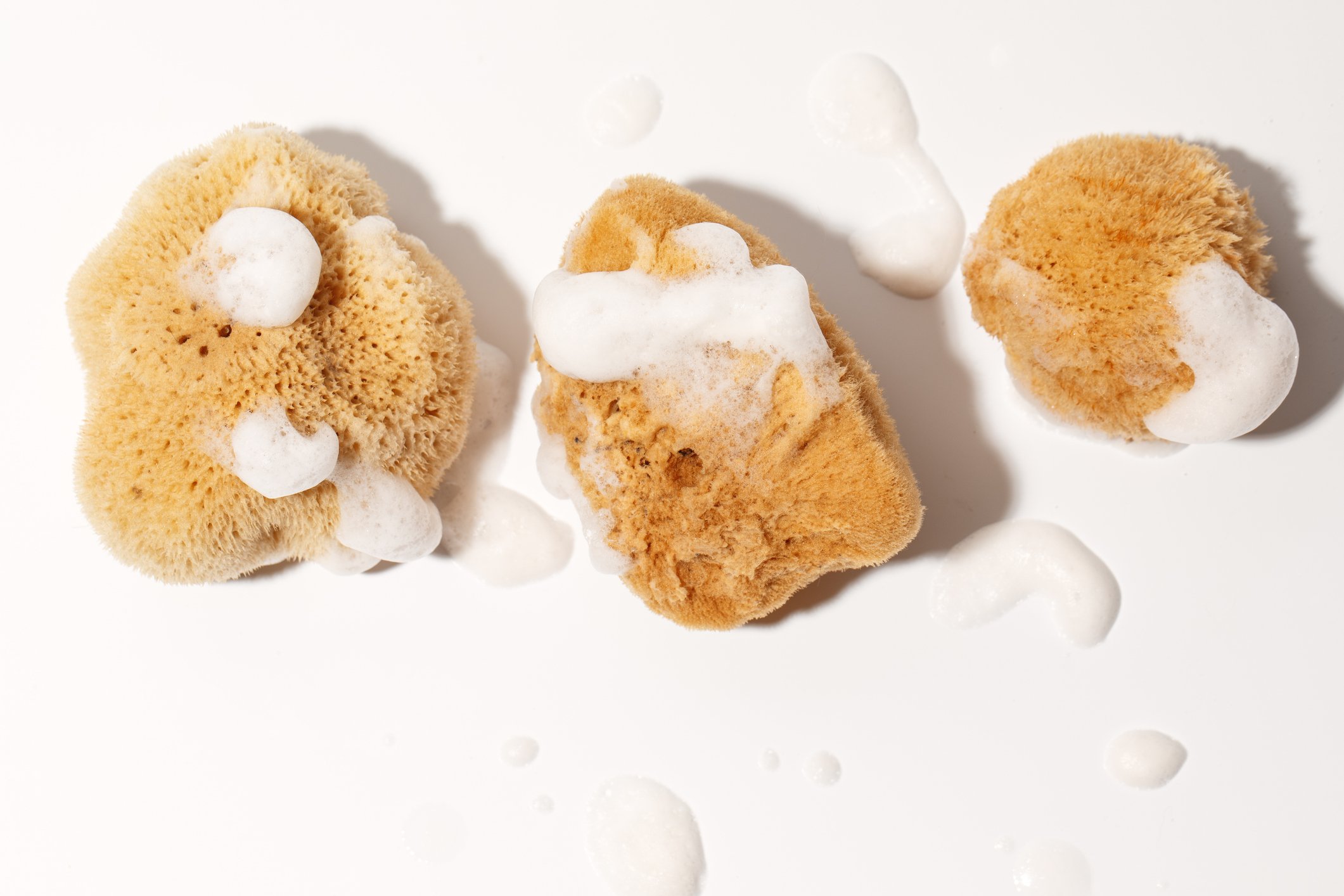
A natural sea sponge is a good lathery alternative, too. Like a loofah, sponges are naturally occurring, and contain no harsh or artificial chemicals the way synthetic puffs do.
Their natural enzymes will also prevent a lot of bacteria buildup, but you will still need to clean them regularly. You can actually zap these in the microwave to kill germs and — as with puffs and loofahs — if they start to smell weird, it’s time to replace them.
What About a Wash Cloth?
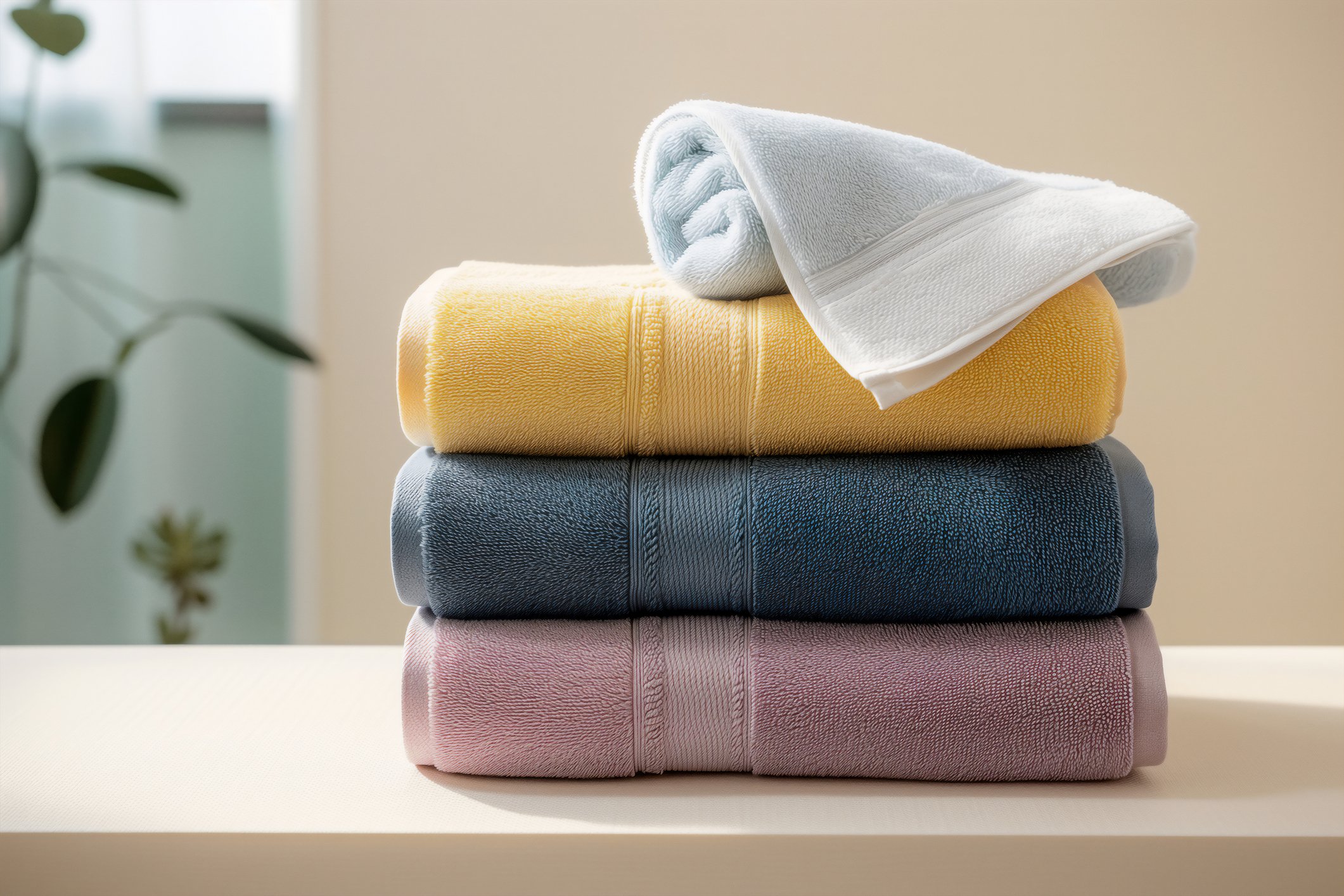
If the idea of bacteria getting trapped in nooks and crannies is too gross for you, try something with fewer of them. A good, old-fashioned washcloth is always a solid choice. You can get the towel-like terrycloth kind just about anywhere. If you’re crafty, you can even make your own.
Washcloths are also easy to manage because you can simply add them to the load of towels. Wash cloths also last a long time.
When in Doubt, Bar It Out
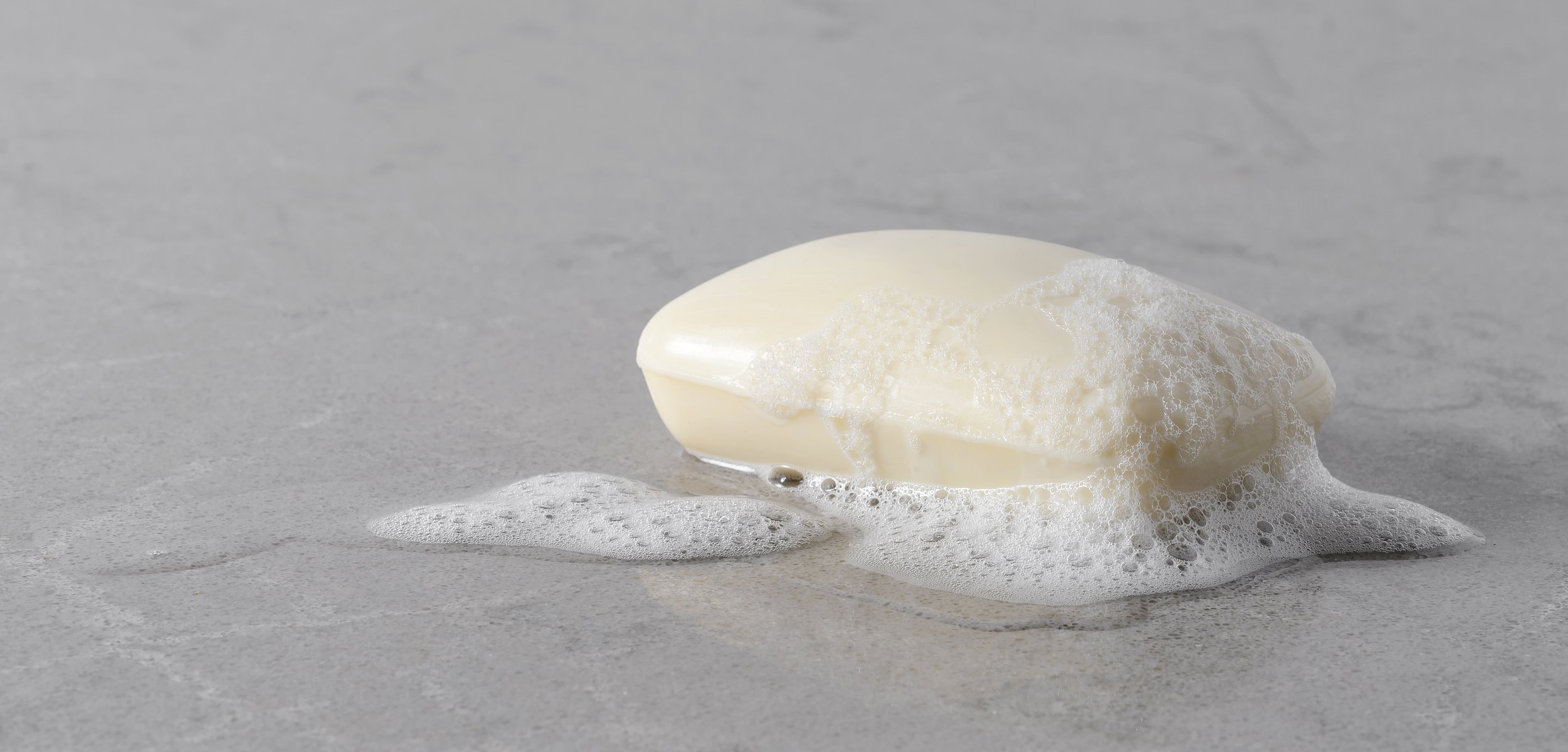
Lastly, you could always forgo a bath accessory altogether and simply pick up some bar soap. (It helps to keep your bar soap off your main shower surface, like on a soap dish that’s cleaned regularly, not share bar soap, and use it consistently enough that layers don’t build up.)
You may not get the mountains of bubbles, but you can get bars with exfoliating ingredients so you don’t have to give up the scrub.
What’s your go-to shower accessory? Do you like to get fancy with scrubbers and sponges, or do you keep things simple with a bar of soap?
*Disclaimer: The advice on LittleThings.com is not a substitute for consultation with a medical professional or treatment for a specific condition. You should not use this information to diagnose or treat a health problem without consulting a qualified professional. Please contact your health-care provider with questions and concerns.

